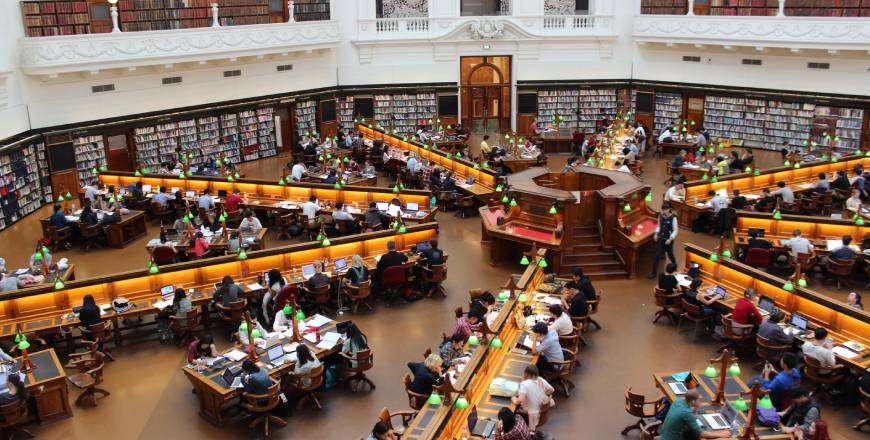Post Graduate Diploma in Peace Building and Development Studies
Course Overview
The program will offer courses in the areas of peace and conflict studies to enable students to become effective negotiators, mediators and arbitrators. It introduces students to concepts, ideas and theories on peace and conflict, and prepares them for careers as middle level workers as well as further education in other fields. The Pgd program seeks to expose students to the complexity and variety of peace and conflict studies at local, national and regional levels especially Africa. Students are given the necessary tools to understand and critically study and analyze conflict situations and how to deal with them.
They are given tools, knowledge and skills which they can use to evaluate the merits of particular strategies of creation of peace and resolution of conflict in order to facilitate development. The program equips students with necessary skills for critical thinking and robust imagination, good decision-making, administration, research, professional reading and writing, and capacity to fit in any career path in a quickly changing world, as well as helping in solving some of the development problems in the world.
Participants will be required to submit 10 assignments, research paper and one final examination for the period of 12 months to demonstrate their understanding of the course content. Assignments account for 60%, research paper accounts for 30% while Examination accounts for 10% of the marks.
MODULE 1 INTRODUCTION TO PEACE BUILDING
Unit 1 Meaning of Peacebuilding
Unit 2 Tasks and Elements of Peace Building
Unit 3 Restorative Justice as a peacebuilding Mechanism
Unit 4 Gender Justice and Mainstreaming Gender in Peacebuilding I
Unit 5 Gender Justice and Mainstreaming Gender in Peacebuilding II
MODULE 2 ARMS PROLIFERATION, PRODUCTION AND DISTRIBUTION PATTERNS
Unit 1 The Pattern of Arms Proliferation, Production and Distribution
Unit 2 International Instruments of Disarmament
Unit 3 Disarmament
Unit 4 Demobilization
Unit 5 Trauma Management
MODULE 3 THE POST CONFLICT ENVIRONMENT AND THE PHASE OF THE PEACE PROCESS
Unit 1 The Post Conflict Environment and the Phase of the Peace Process
Unit 2 Roles of Donor in Post conflict Peacebuilding
Unit 3 Roles of International Organizations in Post conflict Peacebuilding
Unit 4 Roles of Traditional Institutions in Post conflict Peacebuilding
Unit 5 Local Capacity Building Coordination
MODULE 4 REPATRIATION OF REFUGEES AND INTERNALLY DISPLACED PERSONS (IDPs)
Unit 1 Repatriation of Refugees and Internally Displaced Persons
Unit 2 Human Rights Protection for Refugees and IDPs
Unit 3 Reckoning with War Crime and Past Abuses
Unit 4 Independent Judiciary and post conflict Reconstruction
Unit 5 Constitution: Making and Amendment Process (es)
MODULE 5 CONCEPTUALIZING INTERNATIONAL ORGANIZATION AND PEACE BUILDING
Unit 1 Defining International Organization and Peace Building
Unit 2 International Organizations and Peace Building: Evolution
Unit 3 International Organizations and Peace Building: Brief Analysis of Their Organs and Roles
Unit 4 International Organizations and Peace Building: Constraints
MODULE 6 THE AGENTS OF TRANSFORMATION IN INTERNATIONAL ORGANIZATION AND PEACE BUILDING
Unit 1 State and Non-State Actors in the Promotion of a Just and Peaceful Society
Unit 2 Concept of Sovereignty in Relation to International Organization and Peace Building
Unit 3 Foreign Policies of the Major Powers as Facilitators or Conflict Generators in International Organizations and Peace Building
Unit 4 The Role of Municipal and International Laws as They Affect International Organizations and Peace-Building
Unit 5 Causes of International Conflicts
MODULE 7 CONCEPTUAL FRAMEWORK: PEACEMAKING, PEACE KEEPING, PEACE ENFORCEMENT, THEIR PROBLEMS AND STRUCTURES IN GLOBAL POLITICS
Unit 1 Definition of Peace Making, Peace Keeping, Peace Enforcement and Specific Case Studies
Unit 2 Problems Associated with Peace Making, Peace Keeping, and Peace Enforcement in Africa
Unit 3 United Nations and Peace Keeping Force
Unit 4 International Organizations as Structures of Global Politics
MODULE 8 ROLES OF INTERNATIONAL ORGANIZATIONS IN INTERNATIONAL AFFAIRS
Unit 1 The Primary Roles of International, Continental and Regional Organizations in International Affairs and Peace Building
Unit 2 A Critical Review of the Performance of the International, Continental and Regional Organizations in Their Efforts at Maintaining International Peace and Security
Unit 3 The Role of International Court of Justice and Some Relevant Case Studies in Pursuance of Peace and Security
Unit 4 Issues and Challenges in the Field of Global Peace
MODULE 9 EMPHASIS ON PRE-CONFLICT PEACE BUILDING IN THE INTERNATIONAL COMMUNITY
Unit 1 Conflict Management and the Roles of Super-Powers in International Affairs
Unit 2 A Review of The World’s Economic Order as a Peace Building Phenomenon
Unit 3 The World as a Global Village in the Context of International Peace and Security
Unit 4 The Future of International Organizations in the Pursuance of Peace Building Activities
Upon successful completion of the course, the participant will receive a Post Graduate Diploma Certificate of Merit and a transcript.
Duration: 12 Months
Fee: $1000


